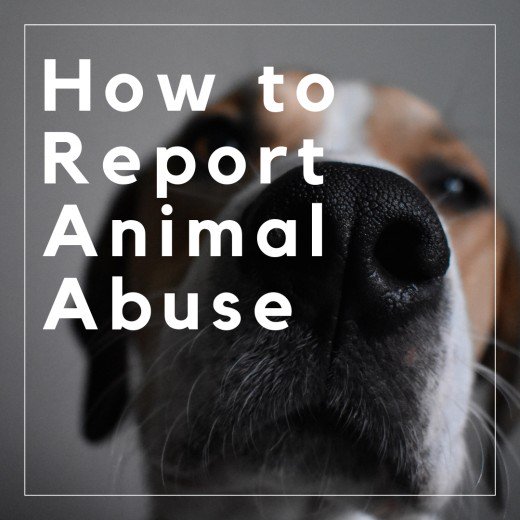In recent years, digital platforms have exploded in popularity, offering diverse avenues for communication, engagement, and community building. Among these platforms, Discord has become a titanic presence, appealing primarily to gamers and interest-based communities. While it serves as a haven for enthusiasts to come together, it is not devoid of darker corners where nefarious activities, including animal cruelty, can occur. This article delves into the complexities of animal cruelty in the digital age, examining its legality on platforms like Discord, the consequences of such actions, and the rigorous steps individuals can take to report abuse.
To begin, it is essential to comprehend what constitutes animal cruelty in the digital landscape. Traditional definitions point to physical harm and neglect inflicted upon animals, but the digital realm extends this concept to encompass the portrayal and discussion of such activities online. Graphic content, glorifying or trivializing animal abuse, can permeate communities, leading to normalization of cruel behaviors among impressionable audiences. It is crucial to differentiate between merely discussing animal themes and actively promoting or participating in cruelty.
One might wonder, “Is animal cruelty legal on Discord?” The short answer is that while discussing animal welfare and promoting humane treatment is acceptable, anything explicit that encourages or showcases cruelty crosses a legal and ethical threshold. Discord, like many platforms, operates under community guidelines and legal regulations, which prohibit such content. However, the enforcement of these rules can vary, posing an ongoing challenge for both users and moderators. Instances of animal cruelty found in chat logs, videos, or even memed images ought to be taken seriously and reported.
Discord offers several types of content where animal cruelty may surface. Some groups can become breeding grounds for shocking imagery, including videos of fights, abuse, or extreme neglect. Such content often passes under the radar, especially when concealed within broader discussions on animals or gaming. Servers dedicated to collecting memes may, inadvertently or otherwise, showcase cruel humor that trivializes animal suffering. In essence, the issue lies not merely within explicit content but also in the subtleties of normalization and rhetoric surrounding animal welfare.
Another significant point of contention is the role of anonymity in digital spaces. The cloak of the internet often emboldens individuals to act without restraint, leading to a propensity for sharing grotesque content without fear of real-world repercussions. This anonymity contributes to a culture where animal welfare discussions can quickly devolve into interactions that glorify harm against creatures unable to voice their plight. Understanding this psychological underpinning is crucial if we are to create a discourse that emphasizes compassion and accountability.
Moreover, the implications of consuming such content cannot be overstated. Studies reveal that exposure to illustrations of cruelty can desensitize individuals, particularly younger audiences. When violent memes circulate amongst friends or organizations, they create a ripple effect, where violence against animals may come to be viewed as acceptable behavior. This cyclical nature of digital exposure and acceptance presents a formidable challenge for society and raises the question of ethical responsibility among online community members.
Fortunately, one more encouraging aspect lies in the accessible mechanisms provided by Discord for reporting abuse. If a user encounters content that fuels animal cruelty—be it through images, videos, or discussion—it is imperative to take action. Discord equips users with the tools to report such abuses within the platform. Direct messaging the server moderators or reporting the content through Discord’s reporting system serves as a vital step in combating these issues. Awareness of these tools and processes can lead to meaningful changes in community standards.
When submitting a report, it is crucial to provide comprehensive information: clear descriptions of the events, screenshots of the relevant content, and the user information, if applicable. Equipping moderators with well-documented cases increases the chances of prompt action and properly addressing the reported behavior. Consideration should also be extending beyond direct reports; fostering a culture that encourages open discussions regarding animal welfare and reinforces the significance of ethical content sharing is equally impactful.
The fight against animal cruelty, especially in virtual spaces, demands proactive, collective action. Communities can establish guidelines that align with higher standards of compassion, encouraging all members to be alert to signs of abusive content. Engaging in dialogues, educating peers about the psychological impacts of cruelty, and amplifying humane voices within these digital platforms create an environment less hospitable to animal cruelty.
As we harness the power of digital platforms, we must challenge ourselves to reflect on our responsibilities toward non-human beings in these spaces. It stands as an ethical imperative to confront the specter of cruelty lurking in online communities. By reporting abuses, raising awareness among peers, and fostering an ethos of respect and empathy, we contribute to a more conscientious digital landscape that cherishes all life. The move toward progress lies in our collective willingness to act and stand against cruelty, forging a future where compassion reigns supreme, both online and offline.








